Xuehua Peng
A Pilot Study of Relating MYCN-Gene Amplification with Neuroblastoma-Patient CT Scans
May 21, 2022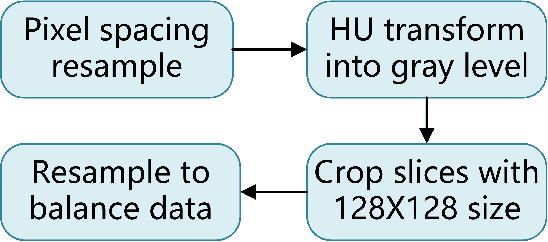
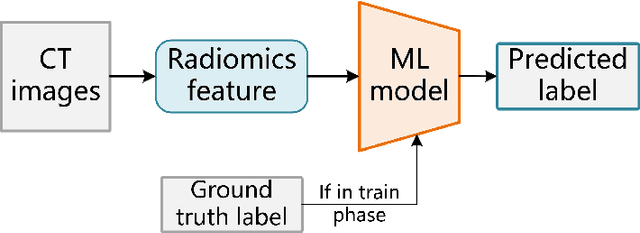
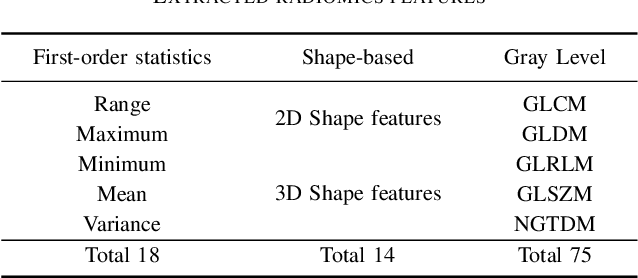
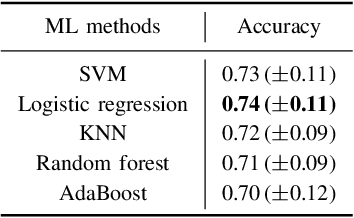
Abstract:Neuroblastoma is one of the most common cancers in infants, and the initial diagnosis of this disease is difficult. At present, the MYCN gene amplification (MNA) status is detected by invasive pathological examination of tumor samples. This is time-consuming and may have a hidden impact on children. To handle this problem, we adopt multiple machine learning (ML) algorithms to predict the presence or absence of MYCN gene amplification. The dataset is composed of retrospective CT images of 23 neuroblastoma patients. Different from previous work, we develop the algorithm without manually-segmented primary tumors which is time-consuming and not practical. Instead, we only need the coordinate of the center point and the number of tumor slices given by a subspecialty-trained pediatric radiologist. Specifically, CNN-based method uses pre-trained convolutional neural network, and radiomics-based method extracts radiomics features. Our results show that CNN-based method outperforms the radiomics-based method.
Advancing COVID-19 Diagnosis with Privacy-Preserving Collaboration in Artificial Intelligence
Nov 18, 2021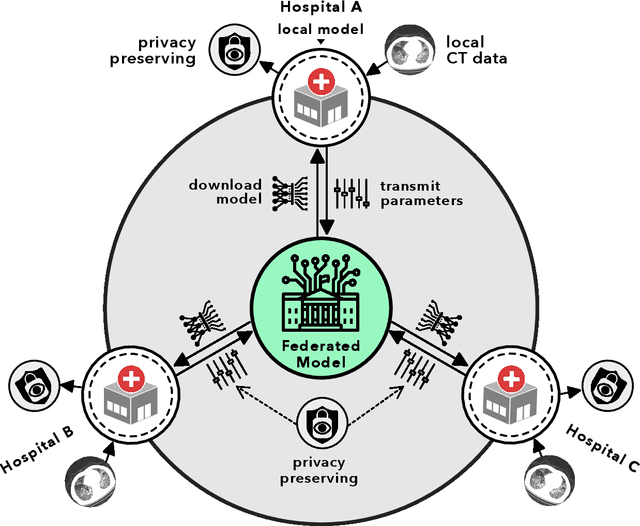
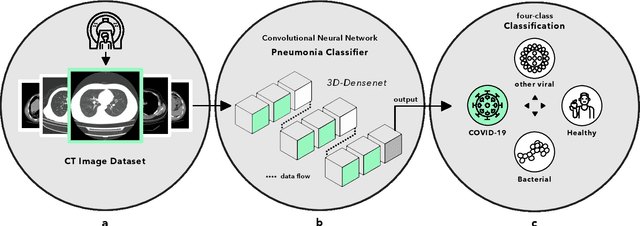
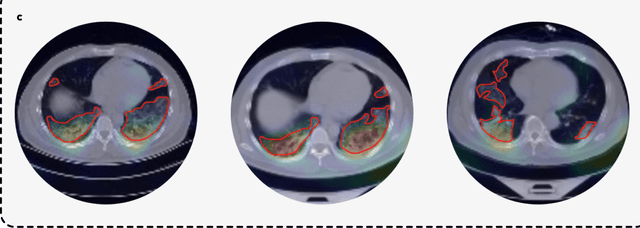
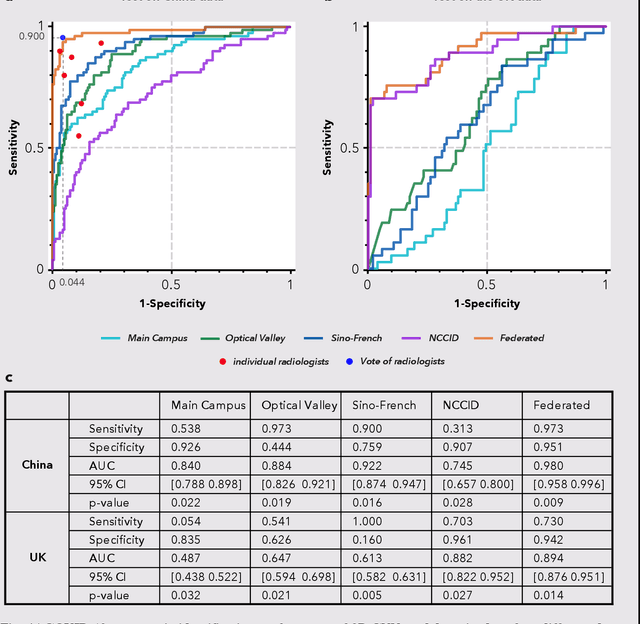
Abstract:Artificial intelligence (AI) provides a promising substitution for streamlining COVID-19 diagnoses. However, concerns surrounding security and trustworthiness impede the collection of large-scale representative medical data, posing a considerable challenge for training a well-generalised model in clinical practices. To address this, we launch the Unified CT-COVID AI Diagnostic Initiative (UCADI), where the AI model can be distributedly trained and independently executed at each host institution under a federated learning framework (FL) without data sharing. Here we show that our FL model outperformed all the local models by a large yield (test sensitivity /specificity in China: 0.973/0.951, in the UK: 0.730/0.942), achieving comparable performance with a panel of professional radiologists. We further evaluated the model on the hold-out (collected from another two hospitals leaving out the FL) and heterogeneous (acquired with contrast materials) data, provided visual explanations for decisions made by the model, and analysed the trade-offs between the model performance and the communication costs in the federated training process. Our study is based on 9,573 chest computed tomography scans (CTs) from 3,336 patients collected from 23 hospitals located in China and the UK. Collectively, our work advanced the prospects of utilising federated learning for privacy-preserving AI in digital health.
 Add to Chrome
Add to Chrome Add to Firefox
Add to Firefox Add to Edge
Add to Edge